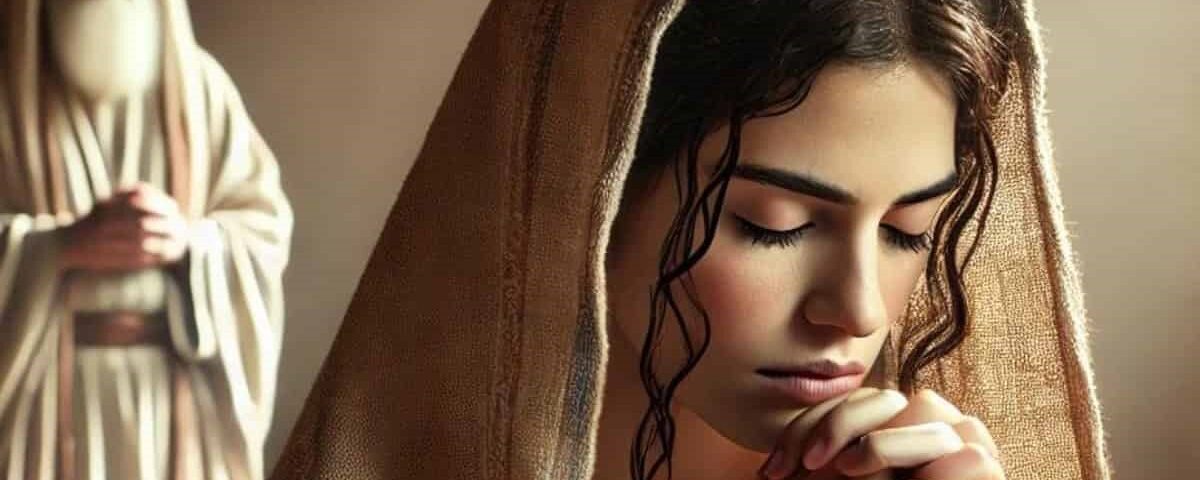Divine Retreat Centre UK – Official Website

Who is Our Guardian Angel?
January 25, 2025
Impatience: The Greatest Obstacle to Spiritual Growth
March 13, 2025The Woman Who Prayed
Having battled infertility for many years, I understand what it is to have none—and I also understand what it is to have and then lose. From the outside, we show smiles and joy, but in the silence of the night, in the loneliness of our bathrooms, we have cried our hearts out—cried out in despair, in hope, in longing to the Lord. Miscarriage, barrenness, stillbirths, losing adult children—these are the pains a woman may endure. Infertility is particularly hard. The cross of infertility weighs heavily, especially when we see the bubbly children of others and wonder why we aren’t blessed.
Hannah was one such woman—childless, yet living with her husband’s second wife and her children. I believe she must have watched those children grow—not just one, but multiple children—and she must have wondered, When, Lord? or Why, Lord? She wasn’t only childless but also discriminated against because of it. Her husband, Elkanah, would present a sacrifice to the Lord and then give Hannah just one choice portion of the meat, while his other wife, Peninnah, received more. To make matters worse, Peninnah would taunt her and mock her for being barren. Hannah endured this year after year, and during festival times, it would get so bad that she would refuse to eat.
Through all of this, Hannah endured silently. She did not retaliate or complain. She would visit the temple every year, praying and pouring out her heart to God, but her prayers remained unanswered (cf. 1 Sam 1:1–8). She had a husband who loved her, yet having a child was never in their control. Just like in our own lives, no matter how desperate we are, we cannot solve all our problems.
During one festival, Hannah was so distressed that she wept bitterly and prayed to the Lord. She made a vow:
“O Lord of hosts, if thou wilt indeed look on the affliction of thy maidservant, and remember me, and not forget thy maidservant, but wilt give to thy maidservant a son, then I will give him to the Lord all the days of his life, and no razor shall touch his head” (1 Sam 1:11).
Hannah trusted that God could work in her life. He was the only one who could act on her prayer. As she poured out her heart to the Lord, she was observed by the high priest, Eli, who thought she was drunk since her lips were moving though he could not hear her voice. When Eli questioned her, Hannah identified herself as a troubled woman who had poured out her anguish to God. Eli then blessed her.
From that moment, Hannah was no longer sad. She worshipped the Lord and went back home with faith that God would work in her life. Surely enough, Hannah was blessed with a son, whom she named Samuel. She cared for him until he was old enough to be weaned.
When the time came, she took her son along with a sacrifice to the Lord—a three-year-old bull, flour, and wine. We are not told about Hannah’s emotions at this point, but any mother would agree how incredibly heart-wrenching this must have felt. Samuel was likely about three years old at the time. Yet she did not waver. She did not run away or tell God it was too difficult to let go. She knew she had to surrender him and place him securely in God’s loving care. And she was obedient and faithful to her word.
She offered Samuel in the service of the Lord:
“As surely as you live, my lord, I am the woman who stood here beside you praying to the Lord. I prayed for this child, and the Lord has granted me what I asked of him. So now I give him to the Lord. For his whole life, he will be given over to the Lord” (1 Sam 1:24–28).
Hannah then sang a beautiful song of praise to God, highlighting His wonderful works and giving Him honor and glory. Scripture tells us that Samuel’s mother would visit him every year and bring him a robe as a gift. Elkanah and Hannah were blessed by Eli, who prophesied that she would have more children because of her vow to God. Indeed, Hannah was blessed with three more sons and two daughters. The woman who once had none became a woman of plenty.
Hannah’s image as a praying woman is now secure—she is recognized as the mother of Samuel, who became a prophet, judge, and king-maker. She knew there was great power in prayer, purpose in the waiting, and a blessing in the fulfillment of her longings. God will never allow our pain and brokenness to have the final say in our lives. He will always give more and bless abundantly, even amid our most difficult seasons.
Lessons from Hannah
“Rejoice always, pray constantly, give thanks in all circumstances; for this is the will of God in Christ Jesus for you.”
—1 Thessalonians 5:16–18
Whatever the situation, rely on prayer. There is power in prayer—it can move mountains.
Patience is the key to God’s blessings. Hannah prayed, but she also waited. And in His perfect timing, God blessed her with a son.




